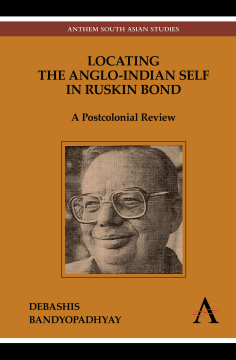
Additional Information
Book Details
Abstract
Ruskin Bond's life - and, for that matter, his semi-autobiographical works - are allegories of the colonial aftermath. His is an odd but exemplary attempt at absorption as a member of the Anglo-Indian ethnic minority, a community whose role in the shaping of the postcolonial Indian psyche has yet to be systematically analysed. This study explores the dialogue between the biographical and authorial selves of Ruskin Bond, whose subjectivity is informed by the fantasies of space and time.
Bond's experiences of socio-political discrimination underwrite his repressed concerns. He seeks to allay his anxieties through an attempt to signify defiance of the functional agencies of those parameters, which ironically become more active as he attempts a symptomatic mastery of their inductive agencies. Nevertheless, for a nostalgic writer the unconscious - which is shaped by the impressions of the experiences of negotiation between double inheritances - exerts a problematic yet discerning influence on Bond's literary self. This study offers a chronological reading of Bond's texts, seeking to bring out the constant presence of this repressed anxiety and the psychological compulsion to dramatize the Self-Other dynamics as a symptomatic method to acquire a conviction of the self.
Ruskin Bond's life - and, for that matter, his semi-autobiographical works - are allegories of the colonial aftermath. His is an odd but exemplary attempt at absorption as a member of the Anglo-Indian ethnic minority, a community whose role in the shaping of the postcolonial Indian psyche has yet to be systematically analysed. This study explores the dialogue between the biographical and authorial selves of Ruskin Bond, whose subjectivity is informed by the fantasies of space and time.
Debashis Bandyopadhyay is Associate Professor of English at Presidency University, Kolkata, where his research interests include ethnic and African American literature, 1950s British and American drama, psychoanalytic interpretation and fantasy narratives, and Shakespeare and the literary public.
'Debashis Bandyopadhyay’s ‘Locating the Anglo-Indian Self in Ruskin Bond’ is an engaging study of an Anglo-Indian writer attempting to establish his identity in the immediate aftermath of Indian emancipation. Bandyopadhay employs judicious biography in service to a sophisticated but accessible psychoanalytic model of ego formation to produce exemplary readings of Bond’s texts.' —Edward O’Shea, Professor of English, The State University of New York at Oswego
Table of Contents
| Section Title | Page | Action | Price |
|---|---|---|---|
| Cover | i | ||
| Front Matter\r | ii | ||
| Half Title\r | ii | ||
| Title\r | iv | ||
| Copyright\r | v | ||
| Contents\r | vi | ||
| Acknowledgements\r | viii | ||
| Chapter 1 INTRODUCTION: READING ‘SELF’ IN A SEMI-AUTOBIOGRAPHICAL AUTHOR | 1 | ||
| Chapter 2 \rSENSE OF EXILE: AN ANGLO-INDIAN CONTEXT | 17 | ||
| Chapter 3 \rTEXT VERSUS CONTEXT: SPACE AND TIME IN THE ROOM ON THE ROOF AND VAGRANTS IN THE VALLEY | 27 | ||
| Chapter 4 \rQUEST FOR AN AUTHENTIC LITERARY GRAIN: TWO VERSIONS OF ‘THE EYES ARE NOT HERE’ | 53 | ||
| Chapter 5 \rCONSCIOUS/UNCONSCIOUS DIALECTIC: STORIES OF THE MID-CAREER | 69 | ||
| Chapter 6 \rINVOKING HISTORY TO RESIST DRIVES: TENSION REVISITED IN A FLIGHT OF PIGEONS | 93 | ||
| Chapter 7 \rSELF IN ABJECT SPACE:‘THE PLAYING FIELDS OF SHIMLA’ | 117 | ||
| Chapter 8 \rCONCLUSION: SELF IN LIMINAL SPACE | 135 | ||
| End Matter\r | 151 | ||
| REFERENCES\r | 151 | ||
| INDEX\r | 155 |
